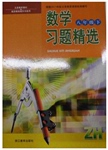阅读理解
A More than half of rich Americans have not shown their full wealth to their children,a new survey showed last Tuesday.
The survey,published by the Bank of America? stud?ied the rich with$ 3 million or more in assets. It found that" surprisingly few of those surveyed have welldeveloped plans to preserve and pass on their assets to their children".
The majority of the457 people surveyed are selfmade,first-generation rich. 52per cent of parents have,chosen not to tell their children just how wealthy they are,and15 per cent have given away nothing about the family wealth. One in three parents said they had never thought to do it.
They are worried that their children would become lazy,spend money freely,make bad decisions and even be?come a target for gold diggers.
Only34 per cent strongly agreed that their children would be able to handle any inheritance (遗产) they plan to leave them.
"There is an expectation about the wealthy parents that they have a responsibility to pass down their fortune to the next generation," said Sallie Krawcheck,former president of the Global Wealth and Investment Manage?ment of Bank of America. "Our research,however,uncov?ered changing views of what one generation owes the next."
The trend is led by the world's richest man Bill Gates,who promised in2008 that he would leave his$ 58 billion fortune to the charity started by him and his wife,the Bill and Melinda Gates Foundation (基金会) ,and not to his children.
"We want to give it back to society in the way that it will have the most positive impact," he said.
Of his plans for his children,Gates said, "I will give the kids some money but not a meaningful percentage... they will need to work but they will feel reasonably taken care of."
11. We can learn from the passage that .
A. rich parents may not know how to manage their inheritance
B. rich parents don't equal rich kids,at least in the US
C. American children don't get to inherit their parents' wealth
D. poor children don't expect themselves to be as rich as their parents
12. According to the survey* most rich Americans
A. think they owe their children nothing
B. think it best to give their money back to society
C. doubt their children's ability to handle wealth
D. are confident of their children's ability to handle wealth
13. The underlined word "they" in Paragraph 6 refers to
A. responsible children
B. Bill Gates and his wife
C. rich children
D. rich parents
14. From the last paragraph,we can see that Bill Gates wants to show .
A. the trend of leaving no inheritance to children
B. the positive impact of charity on society
C. the way of giving back to society
D. the importance of independence for children

 习题精选系列答案
习题精选系列答案
 习题精选系列答案
习题精选系列答案